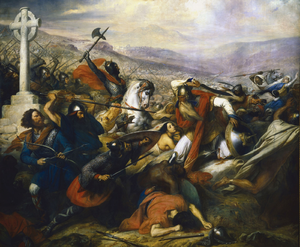A 1988 essay by Jeffrey Hart (professor of English, Dartmouth) about the rise of empiricism and the demotion of philosophical knowledge addresses a myth about the Middle Ages:
This great success story has some humorous and little known features. As customarily recounted, the story features enlightenment and progress winning the day against medieval superstition. In fact, the medieval period was relatively rational. Its folklore and fairy tales, its giants and dragons, were known to be fictions. It was the Renaissance that was riddled with superstition. Bacon and the empirical thrust indeed made their way against Aristotle and the medieval Schoolmen, but also against a world in which the French royalty was guided by Nostradamus, there was likely to be an alchemist or an astrologer in the next apartment, and audiences flocked to plays about Faust or Prospero, or plays in which the opening featured witches or commands from a ghost. The Renaissance did recover Homer and Virgil, but also the underground occult wrirtings of the ancient world as well.
The appeal of magic both black and white during the Renaissance clearly reflects a will-to-control analogous to that of the new empiricism. Faust flew through the air long before the Wright brothers did, and Nostradamus claimed to be predicting the major events of the next 7000 years — and he was taken seriously.

 Armed with spears and shields, an army of Frankish foot-soldiers led by Charles “the Hammer” defeated a superior force of invading Muslim cavalry in the
Armed with spears and shields, an army of Frankish foot-soldiers led by Charles “the Hammer” defeated a superior force of invading Muslim cavalry in the